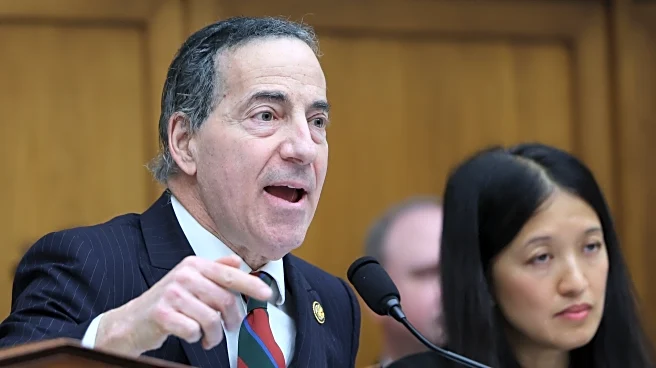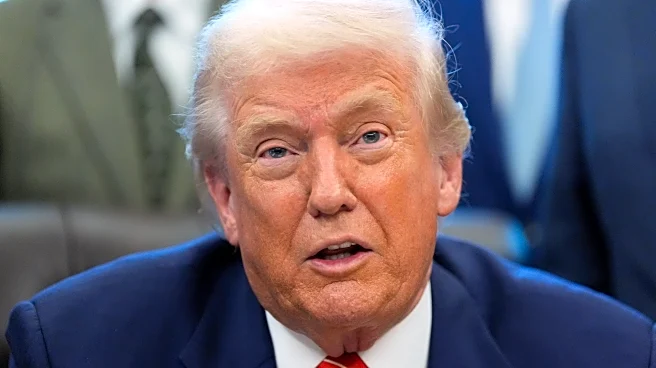What's Happening?
Professional golf legend Jack Nicklaus has secured a $50 million verdict in a defamation lawsuit against his former business partners, the Nicklaus Companies. A jury in Palm Beach County, Florida, found
that the company had damaged Nicklaus's reputation by spreading false claims about his involvement with the Saudi Arabia-backed LIV Golf League and his mental fitness. The lawsuit alleged that the company falsely suggested Nicklaus was considering a $750 million deal with LIV Golf and was suffering from dementia. Although the company's executives, Howard Milstein and Andrew O'Brien, were named in the lawsuit, they were not found personally liable. This verdict follows a previous legal battle where a New York judge dismissed a lawsuit by Nicklaus Companies attempting to prevent Nicklaus from using his name and likeness for his golf course design business.
Why It's Important?
The verdict is significant as it underscores the legal and reputational challenges faced by high-profile individuals in business disputes. For Nicklaus, a revered figure in golf, the ruling helps restore his public image and allows him to continue his business endeavors without the cloud of defamation. The case highlights the potential for business conflicts to escalate into legal battles that can impact personal and professional reputations. It also reflects broader issues of trust and integrity in business partnerships, particularly when personal brands are involved. The outcome may influence how similar cases are approached in the future, emphasizing the importance of clear agreements and communication in business relationships.
What's Next?
Following the verdict, Jack Nicklaus is free to continue his golf course design business under his own name, while the Nicklaus Companies retain rights to sell products with his branding. The case may prompt other high-profile individuals to reassess their business partnerships and legal protections. It could also lead to increased scrutiny of business practices within the sports industry, particularly regarding the use of personal brands. Stakeholders in similar disputes may look to this case as a precedent for resolving conflicts involving defamation and business agreements.










